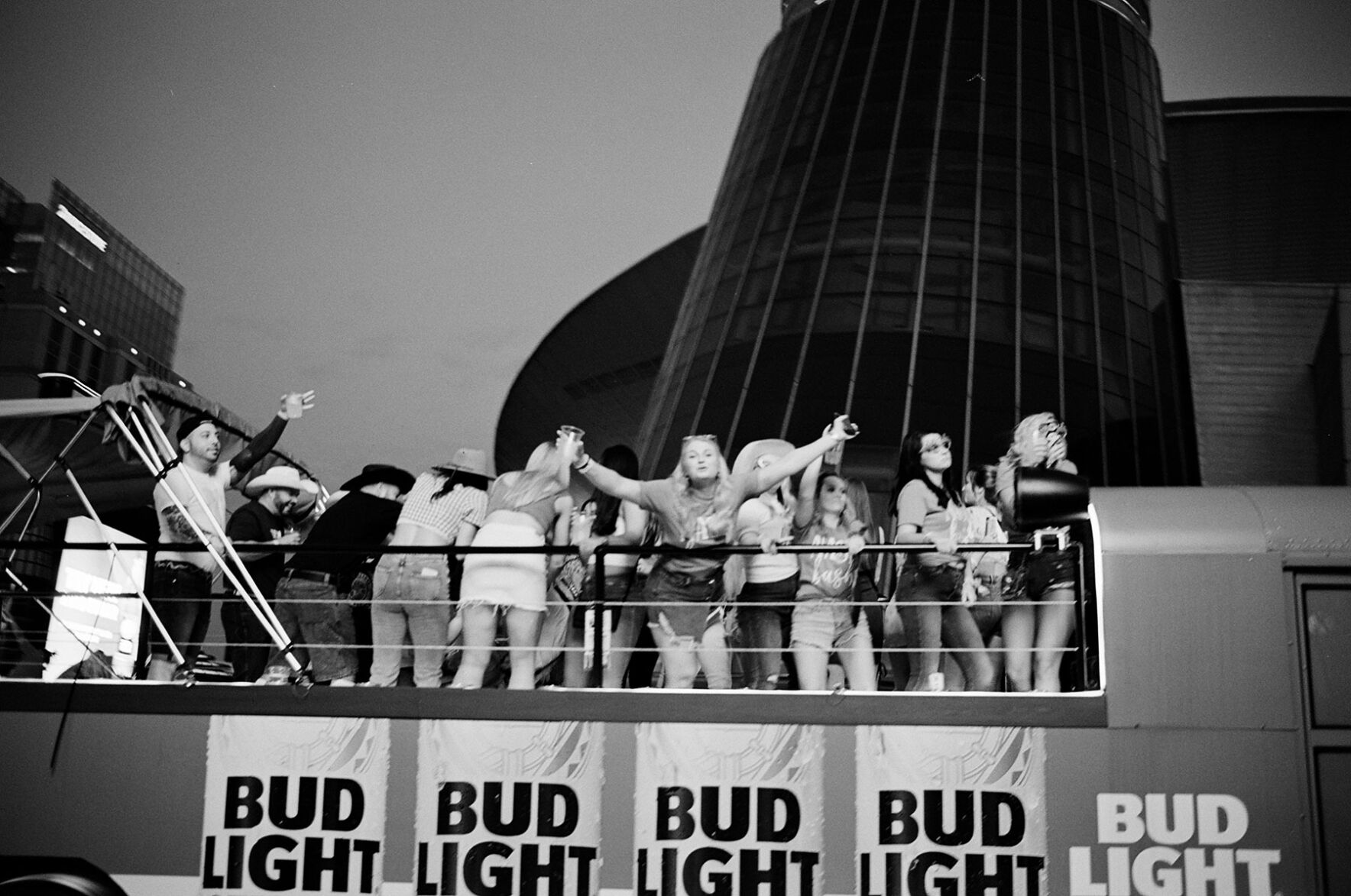House Majority Leader William Lamberth (R-Portland) dropped state lawmakers’ quest to take over entertainment vehicle regulations in the House Transportation Subcommittee on Wednesday. The pivot follows a gentle nudge from Mayor Freddie O’Connell, who assured Lamberth in an email on Monday that the city had Lower Broadway under control.
House Bill 2642 moved out of committee without Lamberth’s 19-page amendment, which would have rewritten the rules and regulations over entertainment vehicles — or "transpotainment" — at the behest of industry owners, represented by powerhouse state lobbyists David McMahan and Beth Winstead. Instead, the bill picked up a shorter attachment that protects the renewal of existing permits for entertainment vehicles and prohibits revoking an active permit without an administrative hearing.
City can’t yet force transpotainment operators to enclose vehicles, acquire liability insurance
Vehicle operators have long criticized restrictive and inconsistent regulation by the city. Opponents, including downtown residents and officegoers, see entertainment vehicles as a disruptive scourge commandeered by drunken partygoers. Diana Alarcon, director of the Nashville Department of Transportation, has tightly managed the city’s permitting process via Metro’s Transportation Licensing Commission, where she does not hold a formal position but participates in debate and influences discussion. Alarcon has consistently favored cutting permits for entertainment vehicles. The city has 90 approved permits for ETV operation in Nashville as of Feb. 15; those familiar with the downtown entertainment transportation industry estimate that it generates around $50 million a year.
Political observers could imagine such an easy shot at Nashville flying through both chambers at this time last year. Wednesday’s concession by a top GOP leader reflects a reduced appetite among lawmakers to interfere with issues of local control in Nashville. Court losses piled up for the state in 2023 after several bills targeting Nashville failed constitutional scrutiny. An explicit written appeal from O’Connell signals open diplomacy between Metro and the state, a shift toward collaboration that was missing during John Cooper’s mayoral administration.
“We believe the regulatory environment you and the General Assembly helped us secure over the past two years is incredibly helpful, and we hope we can demonstrate that we intend to use the authority responsibly,” reads O’Connell’s letter, reviewed by the Scene ahead of Wednesday’s committee hearing. “I believe given more time to focus on enforcement rather than permit reduction impacting existing operators will let us do exactly that.”
Regulation looks to put an end to downtown Nashville's virtual transpotainment free-for-all
In fall 2021, the Metro Council attempted to set up a regulatory regime over the pedal taverns, party buses and various tourism barges that chauffeur out-of-towners downtown. The bill — led by then-Councilmember O’Connell — gained an easy council majority. In practice, Metro has run into problems enforcing and codifying a single set of rules for the wide range of vehicles moving through Lower Broadway and the new ones debuting each year — like, for instance, the Music City Fire Engine, a municipal engine repurposed for partying.
Alarcon favors limiting ETV permits and has been consistently hostile toward the party vehicle industry.
"Your guests are obnoxious, they are rude, they are loud, they create chaos, they try to get attention of the people on the street — it's a problem," Alarcon told ETV owners in December. "I don't think any more permits should be given. Period. End of story."
Commissioners have been hesitant to follow Alarcon's lead without first reviewing data about current vehicles and traffic.







